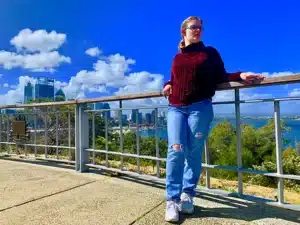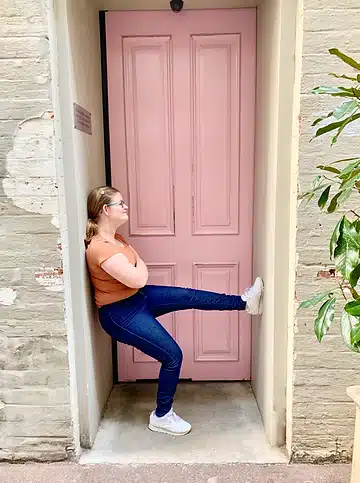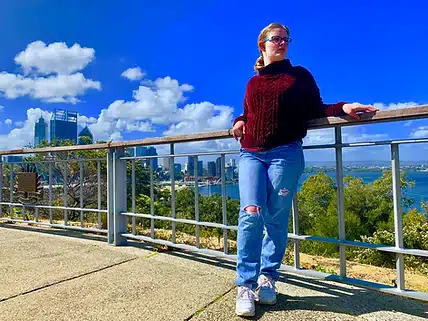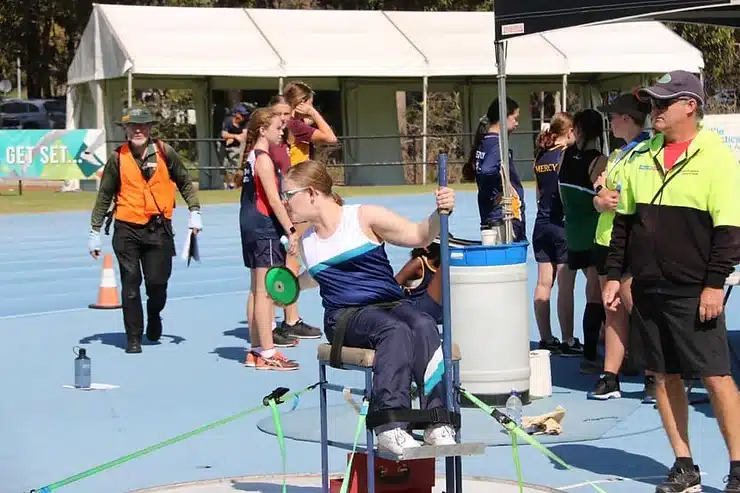Sadly, like most people with disabilities, I had an awful primary and high school experience. Now at 18, I look back at my journey and realise that this has made me the person that I am today, someone committed to helping change the narrative for young people with disabilities. My name is Layne Dixon and I live with cerebral palsy.

This exclusion hurt most, I experienced more direct bullying from people who would act nice but would be very rude to me and other students with disabilities. As silly as it may sound to adults, having friends and fitting in these social settings is so important to the emotional well-being of kids. I am lucky that I had a couple of close friends who honestly helped me survive.
Leaving primary school was a chance of a fresh start, I went from a public school to a private religious school, and thought this would be the best decision for me. While a few people also came from my primary school, when inevitably everyone settled in and found their clique, I became even more isolated and alone. This wasn’t from a lack of trying, I approached people and was open but no one would let me in – casting judgement based on the fact I was disabled before they even knew who I was. I went group to group and everyone shut me off. I eventually made some friends with older kids in the year above, but we didn’t have any classes together.
As the years went on things got better for me at high school, but there was always something that either a student picked on or I was made to feel ashamed of. From boys mocking the way I walked and moved, to getting ice-cream all down my locker and having my books and bag all sticky and gross. Throughout these experience at high school I tried to fix the issues myself, but in doing so never got ahead and the problems persisted. The school did get people from the Ability Centre in to do a talk, and while this helped generally for some people it highlighted that I was different and was seen to be a freak.
I started athletics at the end of 2016, and I think it was right after the Rio Paralympics which I knew not that much about. So, I started as a runner as a T36 short distance runner, but as the season went on, we realised that I am not a runner and so I got into seated throws. As much as I love athletics, it was difficult even then. At one stage, there were two girls who joined that had cerebral palsy and I was hopeful through our shared experiences we would be friends. Sadly, they began to bully me as well, laughing at how I walked and talked – despite them also having a disability. During that time, all of my friends from the year above were away for exams and things like that, so I was hanging out with no one. I was so alone and isolated that I didn’t know what to do and I didn’t know who I could trust.
If we are ever going to call Australia an inclusive and diverse country, then we need to be teaching acceptance for diversity. The next generations need to learn about people with disability and their history, along with other oppressed groups. Young people need to understand that it wasn’t long ago that people with disability were treated inhumanely and that discrimination still occurs. They need to know that in the past 50 years the disability rights movement has come so far and worked so hard. Our teachers need to understand this better as well. One time during a class the teacher put on the TED talk about Dylan Alcott or something related to disability and out of nowhere one of the girls made a rude comment and then the other one said something even worse about me. I stormed out and was really upset. Schools and teacher’s need to have less tolerance for the exclusion and bullying of people with disabilities. Despite all of this occurring over a number of years, it wasn’t until late in year 11 that they finally decided to do something about it. After all these years, I had been subjected to bullying that made me feel worthless and doubt myself – things which now require counselling to build me back up and teach me it is okay to just be me.
What amazes me is at the end of school, everyone wants you to sign their shirt and be involved. People who didn’t invite me to parties or to just hang out socially were acting as though we had been close friends. If we were considered friends, then why was I not included or invited? At the end of high school, these people were crying when saying goodbye to me. Their exclusion had contributed to the worst years of my life and now I was expected to cry and say how much I would miss them.

I wished I had a mentor or someone like me, someone with a disability who is older that I could trust. I am getting to know more and more people within the disability community as I get older, but I didn’t really have anyone that was older than me and able to tell me that I would survive.
Teachers and parents are important but my advice to any parent out there is to find someone that can be a mentor. Perhaps if I had one through those tough years, I would have held my head higher.

